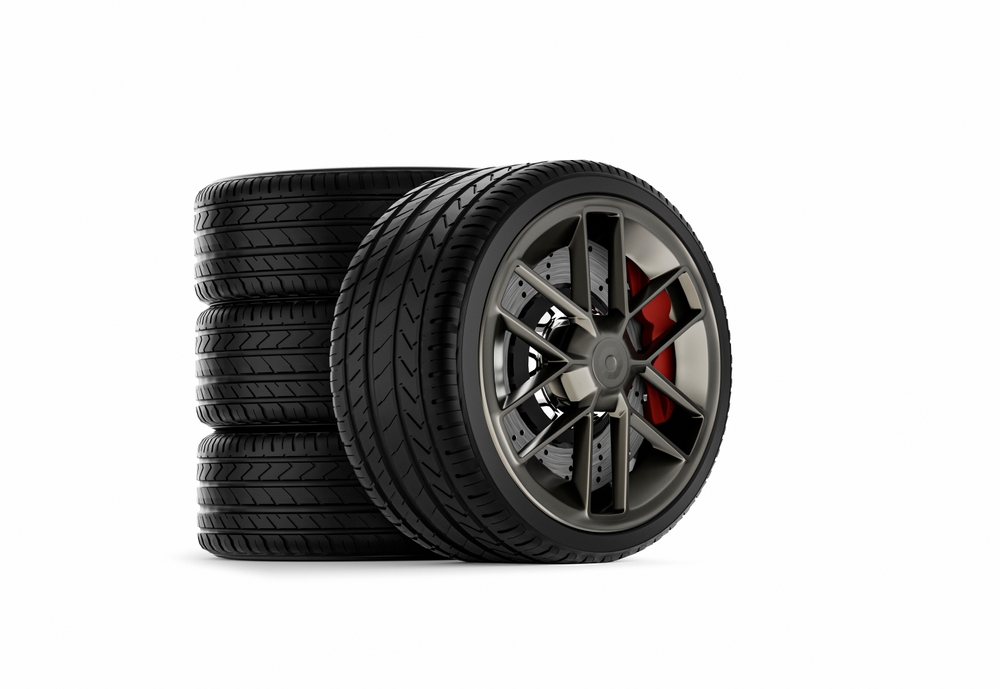Your Ultimate Guide to Choosing the Best Tyres for Electric Vehicle

Electric vehicles (EVs) are changing the way we drive. They offer a greener and more efficient alternative to traditional petrol and diesel cars. But did you know that electric vehicles need special attention? It’s because EVs are heavier, deliver instant torque, and run almost silently. This makes EV tyres a crucial factor in safety, performance, and efficiency.
This brings up some common questions: What makes electric vehicle tyres different? How to choose the right tyres for electric cars? What are the benefits of EV tyres? And how do you know which ones suit your vehicle best?
If you’re looking for the answers, you’re in the right place. Let’s explore everything you need to know about EV tyres and how to find the best fit for your electric car.
Are Electric Vehicle Tyres the Same as Regular Tyres?
Not all tyres are created equal. Some traditional tyres might fit an electric vehicle. But EV tyres are specifically engineered to handle the unique characteristics of electric cars. These differences impact everything from efficiency to safety. Thus, making the right tyre choice important for EV owners.
Do All EVs Need the Same Tyres?
Just like not all electric vehicles are the same. Their tyres also vary based on the car type and driving expectations.
Electric Sports Cars vs. City EVs:
- Electric sports cars need tyres with excellent grip, precise handling, and stability at high speeds to handle the instant torque and rapid acceleration.
- City EVs & everyday vehicles need tyres designed for energy efficiency, long-lasting durability, and a quiet, comfortable ride.
Because of these differences, selecting the right EV tyre for your specific model is crucial.
How Are EV Tyres Different from Regular Tyres?
EVs and traditional internal combustion engine (ICE) cars may look similar. But their performance needs are very different. Here’s how their tyres compare:
EV Tyres vs. Combustion Car Tyres
Feature | Regular Tyres | EV Tyres |
Weight Handling | Standard load capacity | Reinforced to support the heavier battery weight of EVs |
Rolling Resistance | Higher, leading to reduced fuel efficiency | Lower, improving battery range and efficiency |
Noise Level | Louder due to road friction | Quieter to maintain EVs’ silent operation |
Durability | Wears out normally | Special rubber compounds to withstand high torque |
Grip & Braking | Designed for gradual acceleration | Stronger grip to handle instant power delivery |
If you install regular tyres on an EV, you may experience faster wear, reduced battery range, and increased road noise. This is because electric cars deliver instant torque, which puts more strain on tyres, requiring a more robust design.
So, while some ICE tyres may fit an EV, choosing EV-specific tyres ensures better performance, longevity, and efficiency. This helps you get the most out of your electric vehicle.
What Makes EV Tyres Ideal for Electric Vehicles? Key Features to Look for
Electric vehicles (EVs) might look like regular cars from the outside. But they function very differently. Especially when it comes to their tyres. EVs are heavier, generate instant torque, and operate almost silently. Thus, their tyres need to be specially designed to handle the unique challenges.
Let’s explore key features of EV Tyres that make them beneficial for an electric vehicle.
1. A Quieter, More Comfortable Ride
One key advantage of driving an EV is how quiet it is. Since there’s no noisy combustion engine. You get a peaceful and smooth ride. But regular tyres can still create road noise, disrupting that silence.
👉 EV tyres come with built-in noise-reduction technology, such as advanced tread designs and sound-absorbing foam. This helps keep your ride as quiet as possible. This means less cabin noise, more comfort, and a better driving experience.
2. Specialised Tread for Better Performance & Safety
EVs need tyres with a unique tread pattern to match their performance needs. Here’s why:
✔️ Stronger grip & traction – EVs have instant torque, meaning they accelerate quickly. Special tread patterns provide the traction needed for high-speed handling and safer braking.
✔️ Even wear patterns – Standard tyres wear out quickly on EVs. Specialised EV tyres are designed to distribute weight evenly. This leads to a longer lifespan.
Since EVs corner differently and exert more force on their tyres, these enhancements ensure optimal handling, safety, and durability.
3. Stronger Build to Support Extra Weight
Did you know that an EV battery can add up to 400 kg to a vehicle’s weight?
That’s like carrying five extra passengers all the time/ Regular tyres struggle to handle this load, leading to faster wear and potential safety issues.
On the other hand, EV tyres are made with:
✔️ High-strength rubber compounds for extra durability
✔️ Reinforced internal structures to handle the extra weight
✔️ Advanced sidewall technology for better support and stability
This means they last longer and provide a safer driving experience, even under heavy loads.
4. Enhanced Durability to Reduce Wear & Tear
Because EVs put more stress on their tyres. Due to both weight and instant power, they need to be made from tougher materials. EV tyres are built using:
- Steel belts for added strength
- Aramid hybrid reinforcements for durability
- Jointless bead wires for better flexibility and stability
These materials help EV tyres last significantly longer than regular tyres, reducing the need for frequent replacements and lowering maintenance costs.
5. Low Rolling Resistance = More Battery Range
Have you ever wondered why some EVs get more mileage per charge than others? One key factor is rolling resistance. The amount of energy your tyres waste as they roll.
- Higher rolling resistance (regular tyres) → Wastes more energy and reduces battery range
- Lower rolling resistance (EV tyres) → Conserves energy and allow for more miles per charge
By reducing rolling resistance, EV tyres help extend battery life, meaning fewer trips to the charger and more time on the road.
Tyre Type | Effect on Battery Range |
Regular Tyres | More energy loss, shorter range |
EV-Specific Tyres | Less energy loss, longer range |
How to Choose the Right Tyres for Your EV | Factors to Consider
Choosing the right tyres for your electric vehicle (EV) is not just about getting the right fit. It’s about enhancing efficiency, safety, and driving performance. Here’s what you should consider when selecting the best tyres for your EV.
1. Check the Tyre Load Index – Can It Handle the Weight?
EVs are generally heavier than traditional petrol cars due to their large battery packs. This extra weight puts more pressure on the tyres. This means they need to have a higher load-bearing capacity.
- Look for reinforced tyres that are built to support heavier loads.
- Standard extra load (XL) tyres may work for some EVs. But if your vehicle is particularly heavy, heavy load (HL) tyres might be necessary.
- Choosing tyres with a higher load index ensures better durability. It prevents premature wear and maintains safety under heavy loads.
2. The Sound of Silence – Reducing Road Noise
One of the biggest benefits of EVs is their near-silent operation. Unlike combustion-engine cars, which produce engine noise, EVs are so quiet that road noise becomes much more noticeable. This is where noise-reducing tyres come in.
- Some tyres come with built-in noise-reduction technology. Such as a special foam layer inside the tyre. This can reduce interior noise by up to 9 decibels (dB) and your ride gets even smoother and more comfortable.
- Tyres with optimised tread patterns can also minimise vibrations and road noise, enhancing the driving experience.
👉 Pro Tip: If you enjoy a quiet ride, look for tyres with noise-canceling technology to maintain that peaceful cabin environment.
3. Low Rolling Resistance – More Range, Fewer Charges
Rolling resistance means the amount of energy lost as a tyre rolls on the road. The higher the rolling resistance, the more energy is required to move the vehicle, which means your battery drains faster.
- Low rolling resistance (LRR) tyres are designed to reduce energy loss and improve battery efficiency.
- A good set of LRR tyres can increase your EV’s driving range by up to 12%. That might not sound like much, but for an EV with a range of 400 km, it could mean an extra 50 km per charge!
👉 Pro Tip: Look for tyres with an EU tyre label rating of ‘A’ for rolling resistance, as they provide the best efficiency and help you get the most out of every charge.
4. Tyre Durability – How Long Will They Last?
A common concern among EV owners is whether tyres wear out faster on electric cars. The truth is; it depends.
- EVs with two-wheel drive systems may experience up to 25% faster tyre wear compared to traditional cars.
- On the other hand, EVs with four-wheel drive systems can actually make tyres last 10% longer due to better weight distribution.
- The driver’s habits play a huge role. Aggressive acceleration and braking will wear out any tyre faster, whether it’s on an EV or a petrol car.
Where to Find the Right Tyres for EVs?
At Morley Tyres we’ve offer quality tyres design to optimise the performance for electric vehicles. Our tyres are crafted to optimise your EV’s battery range, maintain a quiet cabin environment, and enhance tyre longevity, all while providing excellent safety and driving enjoyment.
We proudly offer the award-winning Kumho EV Tyres. The WATTRUN VS31 range of EV tyres took home the prestigious Red Dot 2018 Award in the ‘Concept’ category.
Our range of Kumho tyres includes:
- ECSTA PS71 EV: A high-performance sports tyre designed for superior handling and braking. Experience a smooth, stable ride with precise control on every drive.
- CRUGEN HP71 EV: A premium all-season touring tyre perfect for luxury SUVs. Enjoy lower road noise, exceptional ride comfort, and balanced traction in both dry and wet conditions.
Find Premium Quality EV Tyres at Morley Tyre Centre
Don’t settle for just any set. Look for tyres that match your vehicle specification and driving needs. Visit Morley Tyre Centre for expert recommendations and the best deals on EV tyres Australia.
